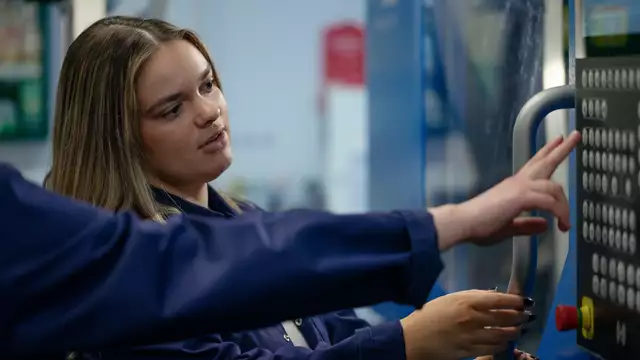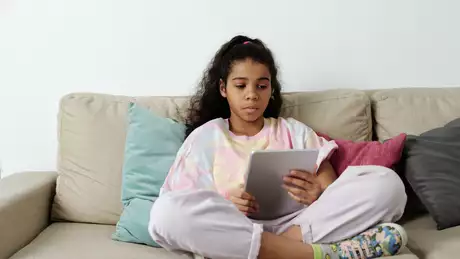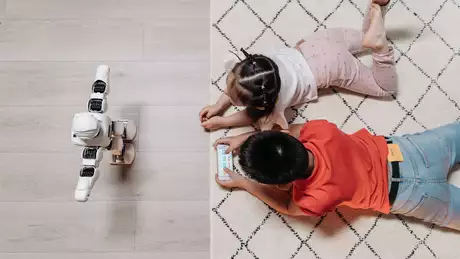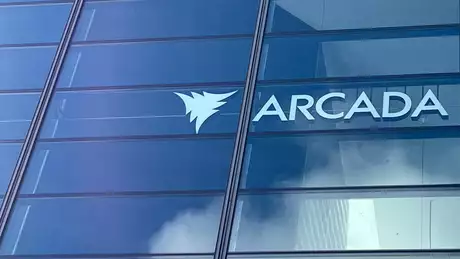
Arcada contributes to a virtual reflection of the future industry
Published: 30.05.2023 / Fundraising
Arcada introduces digital twins in its research and education to support Finnish industry in the long term towards cost-effective and sustainable solutions.
A digital twin is a virtual copy of something that exists in reality, with sensors connected to the real object, through which data is collected to digitally replicate the object – simply described. Through this replication, products, processes and functions can easily be simulated and optimised, thus contributing to more cost-effective and sustainable solutions in the industry.
The possibilities offered by a digital twin have revolutionised the way products and processes are developed and produced – more efficient production processes, higher quality, faster operations and more innovative product development, to name a few. Despite many benefits, several companies in Finland are experiencing challenges in utilising digital twins, given its potential. The main reasons are considered to be lack of time, skilled personnel and the financial resources required to create the digital models.
Fundraising to meet the challenges
To overcome the challenges, Arcada has, through its ongoing fundraising campaign, invested in circular production and process development, where the digital twins are at the centre. In practice, the initiative means implementing digital twins at Arcada and acquiring software to create digital twins of machines and sub-processes that can be used for digital production in both teaching and research.
“We have developed study modules on digital twins and digitally supported environments within the framework of our degree programmes and already this autumn the digital twins are visible in teaching. Once the technology is in place, we will start with theoretical lectures and then carry out experiments and demonstrations in the digital environments. Our engineering students are eager and are also looking forward to the digital twins being integrated into the programme," says Kim Roos, Senior Lecturer in Energy Technology and responsible for the energy and environmental engineering programme in Swedish at Arcada.
Potential that enables collaboration
The financial investment in digital twins in the university's teaching and research also enables interdisciplinary projects, both within the university but also in collaboration with other universities and companies in general.
“We look forward to playing an active role in the establishment of digital twins in various industries. By being a pioneer, we can create synergies that benefit education, industry and business. We see great potential in future research projects and collaborations to help industry more easily benefit from the cost-effective and sustainable solutions that the virtual environments enable. At the same time, we have a lot of expertise in the house to take advantage of, as a basis for the digital twins' establishment in Finnish industry, Roos points out.
With the in-house expertise and new forms of cooperation in focus, an international conference on the topic of smart technologies and education will be organised at Arcada in March 2024. The conference will bring together participants from different parts of the world in the technology and education sector, as part of supporting the deployment of e.g. digital twins, not least at a national level. More information about the conference will be published on Arcada.fi.


